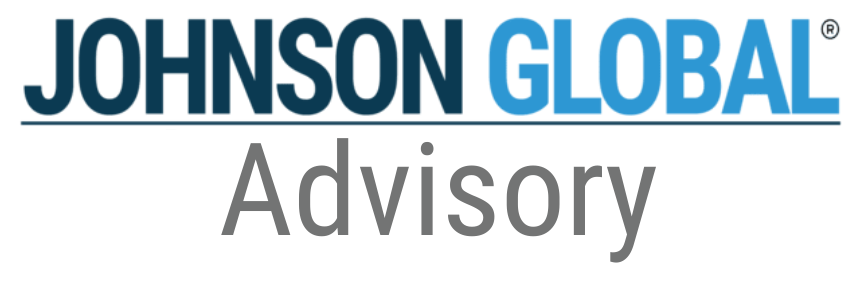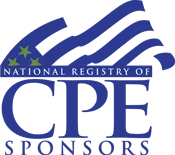Year 2 of the Pandemic... What May Keep Auditors Awake at Night this Busy Season

When the COVID-19 pandemic was thrust upon our world a year ago, the downturn in global economies could not have come at a more inopportune time for auditors – as in February and March 2020 auditors were in the throes of finalizing their calendar 2019 audit procedures. Now, a year later, although we now have multiple COVID-19 vaccines available, our economy and rate of unemployment is still feeling the long-lingering effects of the pandemic. What does this mean for auditors as they assess audit risks during the current busy season?
Estimates
The most difficult aspects for an auditor to conclude on continues to be in the area of accounting estimates; which by definition it is uncertain and is based on judgment. An estimate could be based on one or a combination of any of the following: future looking projections, using internally generated data, using comparative company data, or using historical data, etc. All these approaches rely on data that is based on some sense of normalcy and predictability. 2020 was not normal and 2021 appears to be following suit. With projection data that is now particularly tenuous at best, auditors should be mindful that a company that continues to report poor operating results runs the risk that management could be biased and/or use inappropriate inputs or data in an estimate to inflate performance.
As we discussed in an earlier article , the new estimates standard (AS 2501, Auditing Accounting Estimates, including Fair Value Measurements) which is effective for calendar year 2020 audits, is designed to integrate the risk assessment aspects of estimates into one single standard so that there is a more uniform approach to testing estimates, including auditing fair value of financial instruments and the use of third-party services such as valuation specialists and pricing services. The standard streamlines the auditor’s approach to test estimates into basically 3 options (or a combination thereof):
- test the issuer’s estimation process,
- develop an independent expectation which is compared to the company’s own estimate determination, or
- evaluate evidence obtained after the accounting estimate measurement and compare to the company’s estimate.
That means that auditors now have the perfect storm - having to audit and document based on a new standard as well as an uncertain future economic outlook in the same year!
Now that we are a year into the pandemic, many businesses may be stretched thin with resources and auditors will need to be challenging management’s inputs and methods. The questions that auditors should be asking when testing estimates include:
- Based on the data available to us, which of the three approaches should we use to test the estimate? If we test the company’s own estimate determination, how do we test the company’s methods and data it uses especially given that 2020 operating results did not pan out to the 2020 projections established at the end of 2019? How can we determine that the data is reliable?
- If we decide to develop our own independent expectation, do we have a reasonable basis for using our own assumptions? Is the data we use relevant and reliable?
Going Concern
Back in April 2020 we commented that the going concern assessment of companies during the pandemic would require greater scrutiny by auditors . Although there are some industries that have weathered the pandemic well (and in fact have shown significant growth in 2020), many industries have not been as lucky - specifically companies in the entertainment, casino, gaming, restaurant, airlines, travel, and oil and gas drilling sectors. These companies are still feeling the ill effects of the pandemic and are expected to continue to feel this for at least much of 2021. As auditors of these companies, this extended downturn in operations and financial results exacerbates the going concern risk. Here is a list of questions an auditor should be considering as it prepares to finalize its upcoming 2020 audit:
- Now that this prolonged pandemic is extending into its second year, does it still have sufficient cash resources available for it to make it through the next 12 months?
- Does the company have access to financing if it needed to draw on? The second round of Payroll Protection Program (PPP) loans are much more limited as to who can apply compared to last year’s initial round of PPP loans, so these are not considered much of an option in 2021.
- What are the company’s fixed and variable costs? If a reduction in force has already occurred in 2020, was this sufficient to allow the company to continue as a going concern in 2021 if the economy stays depressed? There is only so many times one can go to the well, before productivity and client service is impeded.
Retrospective Review
An additional important point for an auditor to consider is that if management prepared cash flow projections using 2020 revenue and cost projections for last year’s financial statement opinion asserting going concern, and if an auditor did a retrospective look back, how do those projections compare to 2020 actual results? If the lookback does not support the projections, then what does the auditor need to do or consider to be able to conclude that the 2021 cash flow projections for the upcoming going concern assessment will be reasonable? Did the company’s plans to dispose of assets come to fruition? And if so, did they realize the proceeds that they were expecting?
What should auditors expect from upcoming PCAOB inspections?
Auditors should expect that PCAOB inspections will continue to focus on aspects of an audit that are more complex and require considerable judgment. Especially in industries hard hit with the downturn, and along with adoption of the new estimates standard, inspectors will be particularly keen to be ask:
- Did the engagement team follow one (or more) of the three approaches in the new estimates standard? Have they documented their approach appropriately?
- Did the engagement team appropriately test the completeness and accuracy of the data used in determining the estimate?
- How did the engagement team consider the appropriateness of future cash flows, management plans, and availability of financing when determining its assessment of going concern?
- Did the engagement team perform a retrospective review of the estimate and incorporate the results of this in their risk assessment and response?
- Did the engagement team implement the new standard AS 2501, including performing procedures over specialists?
During our work with our clients, we continue to see that auditors do not clearly or concisely document their considerations in auditing estimates and going concern – always remember to “tell the story” of how you came to your judgment. Especially in these times, auditors should not ignore contradictory or contrary evidence without a full explanation. At the end of the day an estimate that is audited based on sound principles, logic, and methodology, which considers all evidence at hand, should be able to withstand questioning from the regulators. Our experience is that when auditor documentation is lacking in areas that are complex and require judgment, the regulator is going to call you out on that! After all, how can the engagement partner and/or engagement quality reviewer conclude that that an estimate reflected on the balance sheet or the going concern analysis is appropriate if audit documentation is poor and the workpapers are lacking with anything to review. We find that documentation of sound and reasonable judgement wins the day!
Geoff Dingle,
JGA Managing Director, works with PCAOB-registered accounting firms helping them identify, develop, and implement opportunities to improve audit quality. With over 20 years of public accounting experience, he spent nearly half of his career at the PCAOB where he conducted inspections of audits and quality control. Geoff has extensive experience in audits of ICFR and firms’ systems of quality controls. Prior to the PCAOB, he worked on audits in various industries at Deloitte in Atlanta and Durban (South Africa).
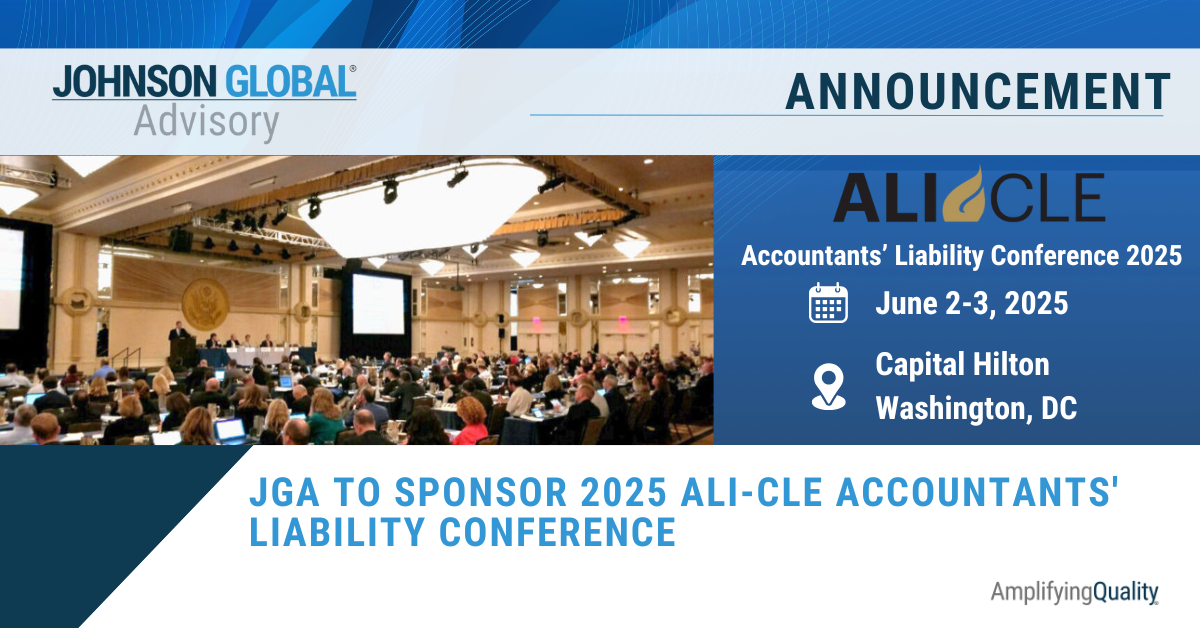


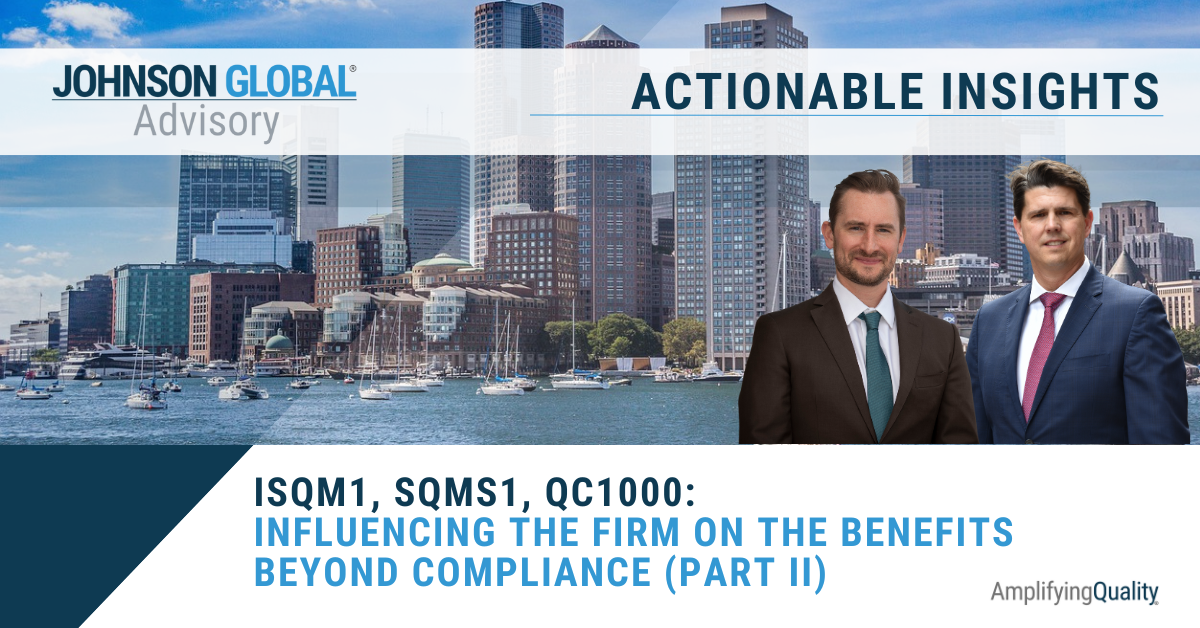
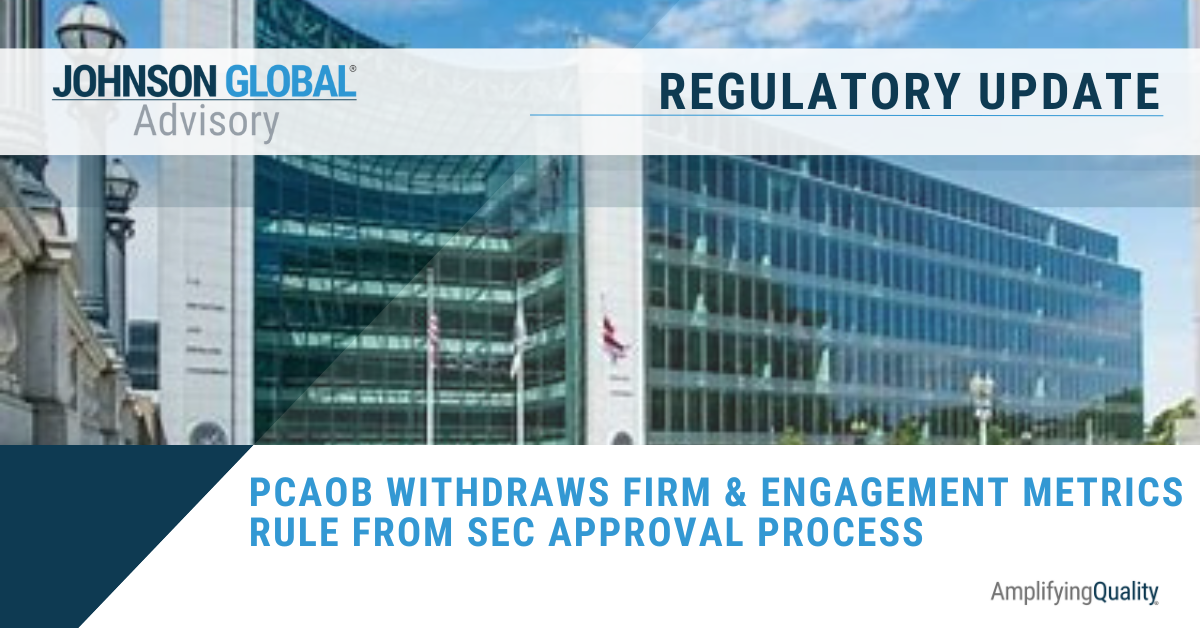
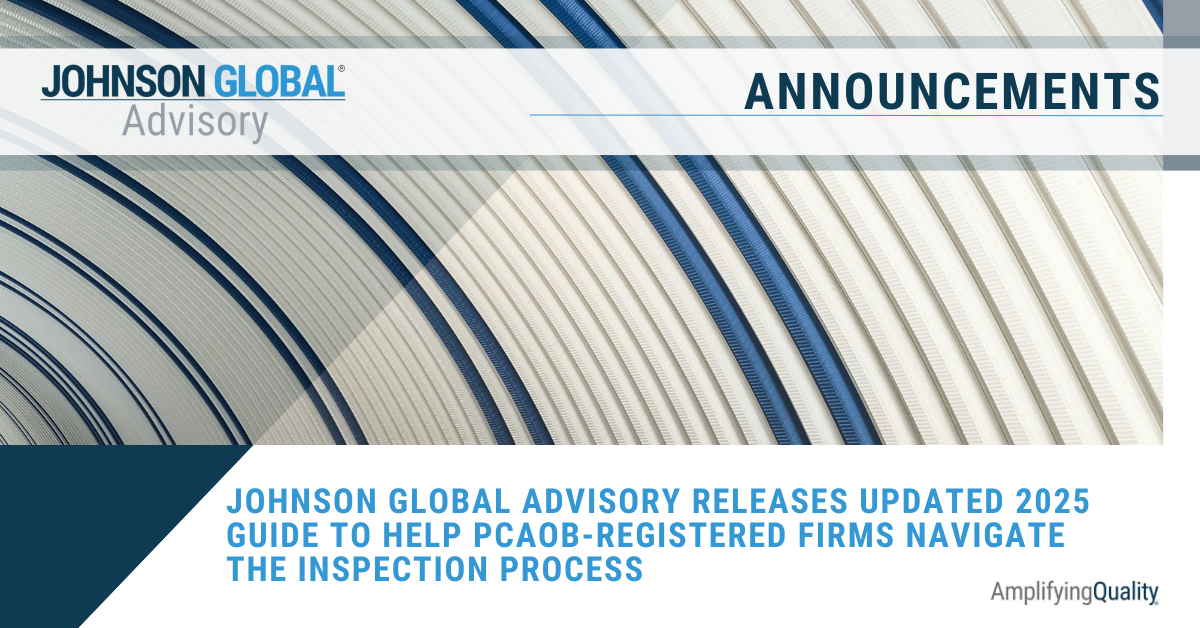

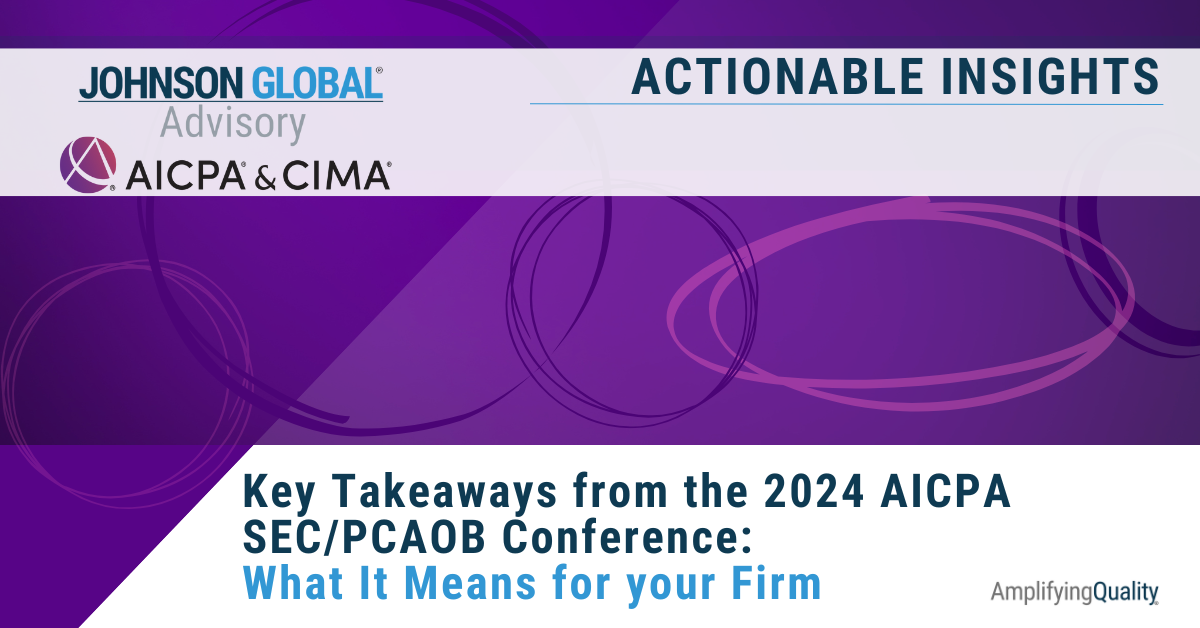
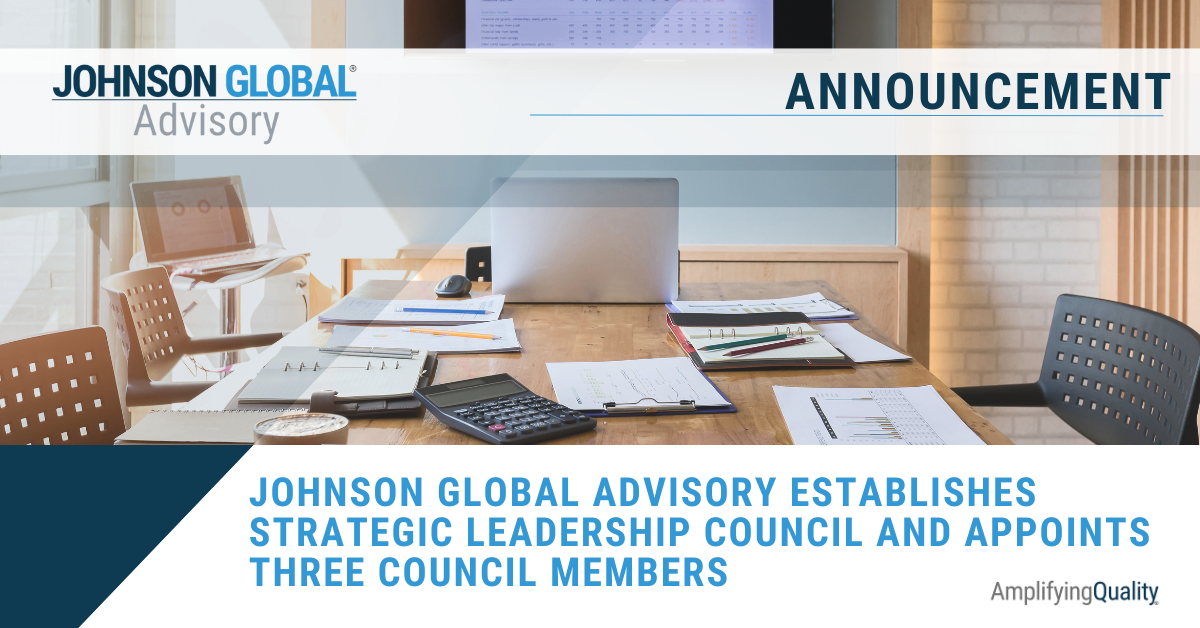

Johnson Global Advisory
1717 K Street NW, Suite 902
Washington, D.C. 20006
USA
+1 (702) 848-7084
